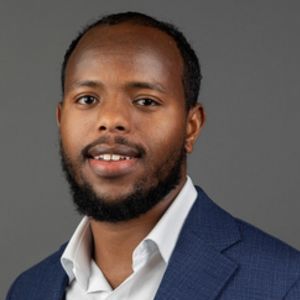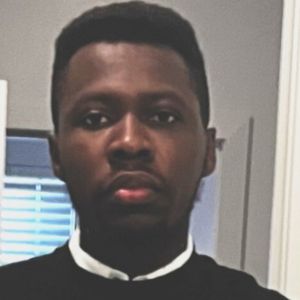Ali, Falade, Usman selected for mentoring program
Bashir Ali, Omolara Falade and Olalekan Usman have been selected to participate in the Scientist Mentoring & Diversity Program for Biotechnology, or SMDP. The program pairs ethnically diverse students and early career researchers with industry mentors in the medical technology, biotechnology and consumer healthcare industries for one year.
Ali is a graduate student at the University of California, Santa Barbara. He performs research in Assistant Professor Brooke Gardner’s laboratory on the function of substrate binding domains of the enzyme peroxisomal biogenesis factor 1 and factor 6 in peroxisome biogenesis. In 2020, he won a National Science Foundation Graduate Research Fellowship.
Falade is a graduate student at Texas A&M University pursuing her Doctor of Pharmacy degree. She is also an AbbVie EMERGE Program Scholar and completed an internship with the Federal Drug Administration in 2024.
Usman is a graduate student at Florida State University. He is studying the mechanobiology of cancer progression with Assistant Professor Jerome Irianto at FSU. In 2023, Usman completed an internship with Eli Lilly and Company.
Enjoy reading ASBMB Today?
Become a member to receive the print edition four times a year and the digital edition monthly.
Learn moreGet the latest from ASBMB Today
Enter your email address, and we’ll send you a weekly email with recent articles, interviews and more.
Latest in People
People highlights or most popular articles

Embrace your neurodivergence and flourish in college
This guide offers practical advice on setting yourself up for success — learn how to leverage campus resources, work with professors and embrace your strengths.

Survival tools for a neurodivergent brain in academia
Working in academia is hard, and being neurodivergent makes it harder. Here are a few tools that may help, from a Ph.D. student with ADHD.

Quieting the static: Building inclusive STEM classrooms
Christin Monroe, an assistant professor of chemistry at Landmark College, offers practical tips to help educators make their classrooms more accessible to neurodivergent scientists.

Hidden strengths of an autistic scientist
Navigating the world of scientific research as an autistic scientist comes with unique challenges —microaggressions, communication hurdles and the constant pressure to conform to social norms, postbaccalaureate student Taylor Stolberg writes.

Richard Silverman to speak at ASBMB 2025
Richard Silverman and Melissa Moore are the featured speakers at the ASBMB annual meeting to be held April 12-15 in Chicago.

Women’s History Month: Educating and inspiring generations
Through early classroom experiences, undergraduate education and advanced research training, women leaders are shaping a more inclusive and supportive scientific community.



